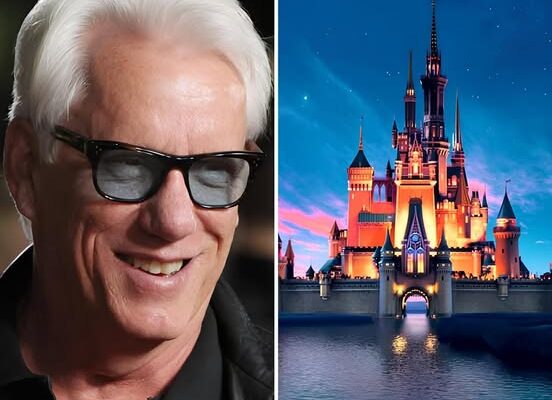In a remarkable and unprecedented decision, veteran actor James Woods has publicly declined an offer from Disney, citing concerns regarding what he characterizes as the company’s “woke” agenda. The proposal, reportedly valued at $250 million, was intended for a significant project that Disney anticipated would feature the esteemed actor.
The Proposal
Sources familiar with the negotiations indicate that Disney presented Woods with a lucrative opportunity for a new venture. While specifics about the project remain undisclosed, it was anticipated to be a substantial addition to Disney’s extensive portfolio, likely involving a prominent role for Woods. Given the substantial financial incentive, many expected Woods to accept the offer without hesitation.
Woods’ Reaction
In a surprising turn of events, however, Woods chose to reject the proposal. He issued a statement declaring, “I refuse to work for ‘woke’ Disney.” This refusal is rooted in Woods’ long-standing critique of what he perceives as the overwhelming influence of political correctness and progressive ideology in Hollywood, particularly within Disney.
The “Woke” Controversy
The term “woke” has emerged as a contentious buzzword in recent years, often used to denote heightened awareness and activism surrounding social justice issues, including race, gender, and sexual orientation. Critics like Woods contend that this focus has resulted in excessive political correctness, adversely affecting the quality and creativity of entertainment content.
Woods has been a vocal opponent of this trend, frequently utilizing social media to articulate his perspectives. He argues that the push for inclusivity and representation has, at times, overshadowed storytelling and artistic merit. His decision to turn down Disney’s offer appears to be a stand against what he perceives as the company’s capitulation to these pressures.
Industry Reactions
Woods’ decision has ignited a wave of responses throughout the entertainment sector. Proponents commend his position, perceiving it as a bold stand against what they consider the suppression of artistic freedom. They contend that Woods’ refusal underscores a growing unease among certain actors, directors, and writers who feel compelled to adhere to a particular ideological narrative.
Conversely, detractors argue that Woods’ rejection of the offer is misguided. They maintain that the push for diversity and inclusion is crucial in an industry that has historically sidelined specific groups. They view Disney’s initiatives as a constructive move towards more representative and equitable storytelling.
The Future of Hollywood
Woods’ public dismissal of Disney’s offer raises significant questions regarding the future of Hollywood. As the industry navigates shifting societal norms and expectations, tensions between creative liberty and social accountability are likely to persist.
For Disney, this rejection may lead to a period of reflection concerning their strategies for inclusivity and representation. The company has made considerable progress in recent years to diversify its content and workforce; however, Woods’ stance indicates that not all industry veterans are aligned with these transformations.
For James Woods, this action solidifies his reputation as a prominent critic of the industry’s changing landscape. Whether this will influence his future career prospects remains uncertain, but it undoubtedly positions him as a significant figure in the ongoing discourse regarding the direction of Hollywood.
Conclusion
James Woods’ choice to decline Disney’s $250 million offer on the grounds of opposing the company’s “woke” agenda highlights the intricacies of the current cultural environment in Hollywood. As the industry continues to evolve, the balance between artistic integrity and social responsibility remains a critical consideration.



